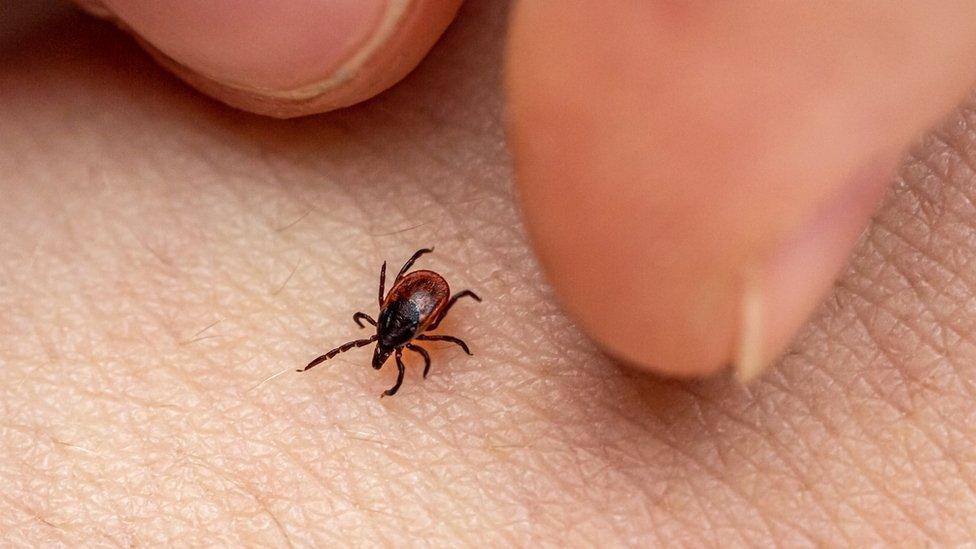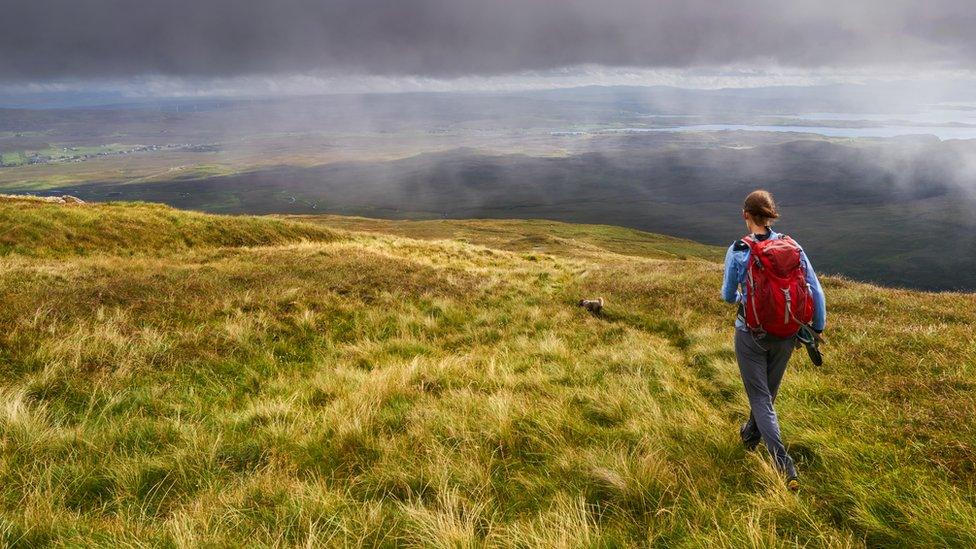Lyme disease: Woman tries to have 'some normality'

Olivera Marshall said she was currently "just managing my symptoms"
At a glance
A woman says people need to be aware of how Lyme disease is caught from ticks
Olivera Marshall said she was infected when on grass for less than 10 seconds during a picnic
Public health bosses say avoiding being bitten is the most effective course of action
- Published
A woman from Devon with Lyme disease says people need to be aware of how the disease is caught from ticks, and how it affects sufferers.
Olivera Marshall said she was infected when she laid down on grass for less than 10 seconds to have her photo taken during a woodland picnic in June 2020.
She said the condition, caused by an insect she did not see or feel, had completely changed her life, including hospitalisation, plus experiencing cognitive impairment and severe fatigue.
Public health leaders said cases in England and Wales had been increasing annually until 2020, and the most effective way to reduce risk was to prevent getting bitten in the first place.

About 10% of ticks in the UK carry Lyme disease, experts say
Mrs Marshall was out at Kingwear with her husband and two daughters when she believes she was bitten.
She said she did not feel the insect and did not start feeling unwell until two weeks later, when a rash appeared and got larger.
The condition was immediately diagnosed by her GP and she was put on antibiotics, but the infection took hold.
She said: "I was pretty healthy and fit and busy.
"Since this happened... I don't have that concentration anymore. Some days I struggle to read, write or even speak; then there's this constant fatigue."
She added: "Every day is different. I'm just managing my symptoms and trying my best to have some kind of normality.
"It's very important that people are treated as soon as possible."
Public Health England said risk of the disease in Devon was "quite low", with a rate in across the county in 2022 of 4.9 cases per 100,000 people.
It acknowledged that there were risks, but added that being out in nature was also good for people's physical health and mental wellbeing.
It said people should try to avoid ticks by walking on clearly defined paths to avoid brushing against vegetation, plus wear long trousers rather than shorts to lessen the chance of being bitten.
Long sleeves
It said people should try to avoid ticks by walking on clearly defined paths to avoid brushing against vegetation, plus wear long trousers rather than shorts to lessen the chance of being bitten.
Charity Lyme Disease UK said it estimated about 10% of ticks in the UK carried Lyme disease.
People heading outdoors should take tick repellent and a removal tool, avoid walking through long grass, wear light-coloured clothing to make ticks easier to spot, tuck trousers into shoes and wear long sleeves.
The symptoms of Lyme disease could vary, so it was important people were aware of them all, the charity added.
Follow BBC News South West on Twitter, external, Facebook, external and Instagram, external. Send your story ideas to spotlight@bbc.co.uk, external.
Related topics
Related internet links
- Published14 May 2023

- Published7 April 2023
